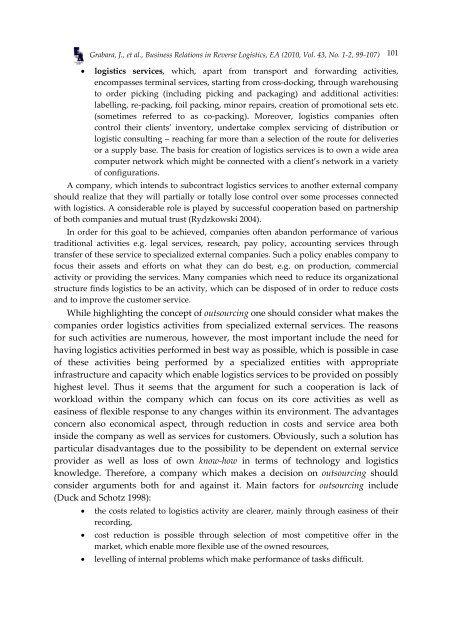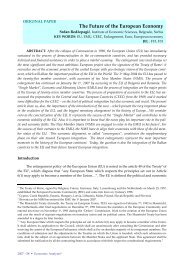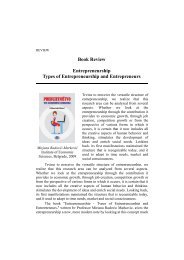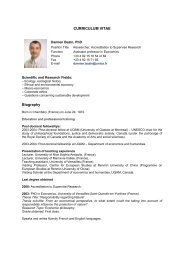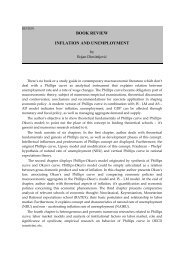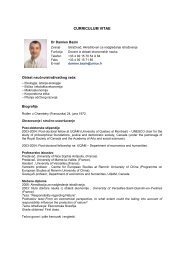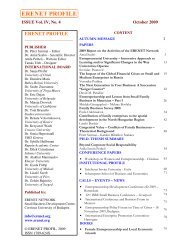Twice a Year Scientific Journal
Twice a Year Scientific Journal
Twice a Year Scientific Journal
You also want an ePaper? Increase the reach of your titles
YUMPU automatically turns print PDFs into web optimized ePapers that Google loves.
Grabara, J., et al., Business Relations in Reverse Logistics, EA (2010, Vol. 43, No. 1-2, 99-107) 101<br />
• logistics services, which, apart from transport and forwarding activities,<br />
encompasses terminal services, starting from cross-docking, through warehousing<br />
to order picking (including picking and packaging) and additional activities:<br />
labelling, re-packing, foil packing, minor repairs, creation of promotional sets etc.<br />
(sometimes referred to as co-packing). Moreover, logistics companies often<br />
control their clients’ inventory, undertake complex servicing of distribution or<br />
logistic consulting – reaching far more than a selection of the route for deliveries<br />
or a supply base. The basis for creation of logistics services is to own a wide area<br />
computer network which might be connected with a client’s network in a variety<br />
of configurations.<br />
A company, which intends to subcontract logistics services to another external company<br />
should realize that they will partially or totally lose control over some processes connected<br />
with logistics. A considerable role is played by successful cooperation based on partnership<br />
of both companies and mutual trust (Rydzkowski 2004).<br />
In order for this goal to be achieved, companies often abandon performance of various<br />
traditional activities e.g. legal services, research, pay policy, accounting services through<br />
transfer of these service to specialized external companies. Such a policy enables company to<br />
focus their assets and efforts on what they can do best, e.g. on production, commercial<br />
activity or providing the services. Many companies which need to reduce its organizational<br />
structure finds logistics to be an activity, which can be disposed of in order to reduce costs<br />
and to improve the customer service.<br />
While highlighting the concept of outsourcing one should consider what makes the<br />
companies order logistics activities from specialized external services. The reasons<br />
for such activities are numerous, however, the most important include the need for<br />
having logistics activities performed in best way as possible, which is possible in case<br />
of these activities being performed by a specialized entities with appropriate<br />
infrastructure and capacity which enable logistics services to be provided on possibly<br />
highest level. Thus it seems that the argument for such a cooperation is lack of<br />
workload within the company which can focus on its core activities as well as<br />
easiness of flexible response to any changes within its environment. The advantages<br />
concern also economical aspect, through reduction in costs and service area both<br />
inside the company as well as services for customers. Obviously, such a solution has<br />
particular disadvantages due to the possibility to be dependent on external service<br />
provider as well as loss of own know-how in terms of technology and logistics<br />
knowledge. Therefore, a company which makes a decision on outsourcing should<br />
consider arguments both for and against it. Main factors for outsourcing include<br />
(Duck and Schotz 1998):<br />
• the costs related to logistics activity are clearer, mainly through easiness of their<br />
recording,<br />
• cost reduction is possible through selection of most competitive offer in the<br />
market, which enable more flexible use of the owned resources,<br />
• levelling of internal problems which make performance of tasks difficult.


